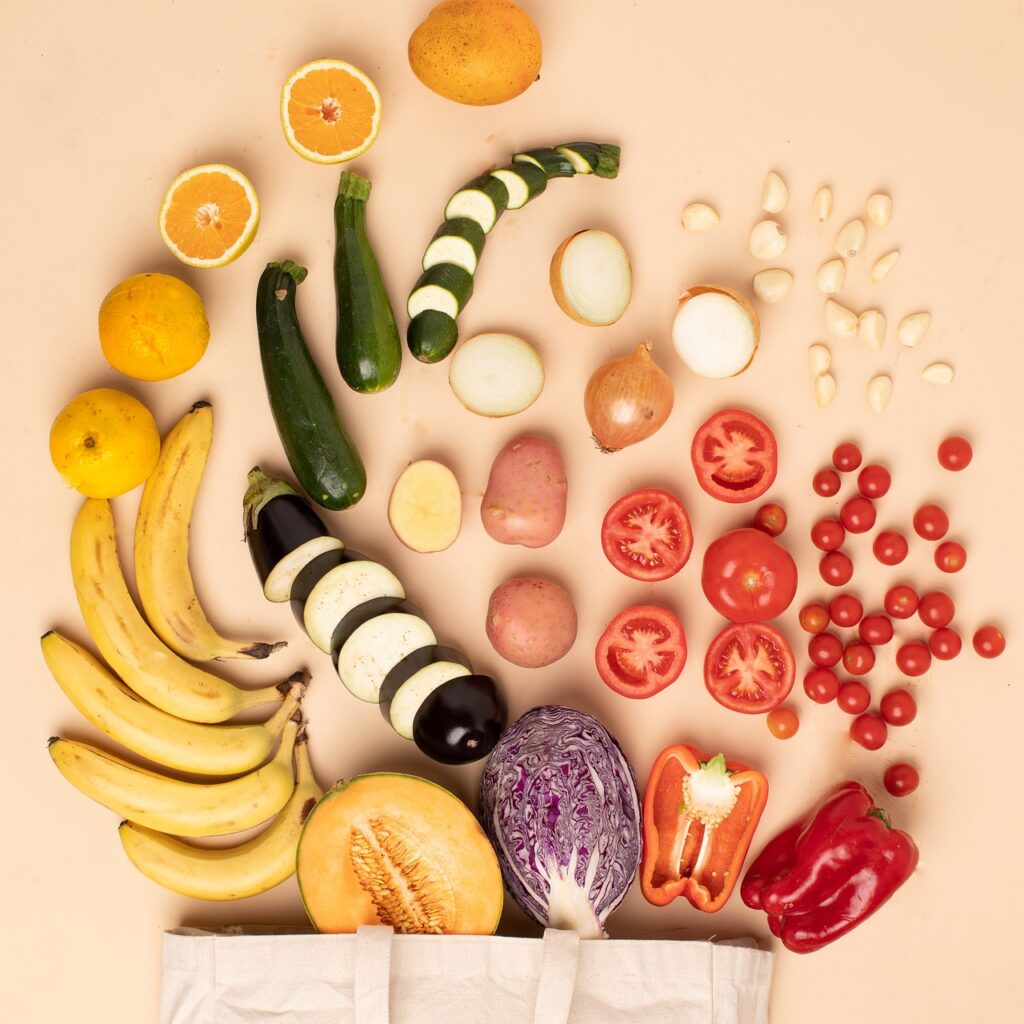14/06/2024
14/06/2024
Through the years, the desire for healthy eating has created food trends, like keto diet, juicing, and clean eating (food without preservatives and any artificial ingredients).

But many of these trends have been around since the dawn of civilization, and one of those trends is seasonal eating, which means eating locally grown food upon harvest. You enjoy what fruits and vegetables are in season in the UAE.
Big on Flavor, Big on Nutrition
Although a big part of this approach to healthy eating is buying seasonal fruits and vegetables online or in brick-and-mortar stores, there are also some types of fish available seasonally (e.g., grouper, kingfish, trevally). The idea with choosing seasonal food products is to fill your plate (and tummy) with produce that was harvested recently in your location. It’s going one step further with eating locally. It’s about reconnecting with the cyclical pattern of nature.
Seasonal eating aligns your body with the change in season and weather, giving you adequate nutrition. When cabbage, peas, and cauliflower are harvested some 80 days after they’re planted in December, these vegetables are at their peak. You not only get them at their nutritional best, but also at their tastiest stage.
Seasonal Fruits and Vegetables to Buy Online
Buying seasonal produce not only ensures better flavor and nutritional value but also supports local agriculture and can be more cost-effective. Through online shopping, you’ll find whatever you need, including vegetables and fruits in season.
So what’s in season in the UAE?
The UAE has two seasons: winter and summer, with two transitional periods (April to May, and October to November). Certain vegetables and fruits are planted in different months.
Here’s a guide to help you choose the best seasonal produce to buy online throughout the year in the UAE, ensuring you enjoy the freshest and most flavorful options available.
Cool-Season Produce
During the cooler season (December to March), be on the lookout for the following:
- Tomatoes: During the cooler months, tomatoes are at their peak, providing rich flavor and versatility for salads, sauces, and various dishes.
- Cucumbers: Crisp and refreshing, cucumbers are perfect for salads, snacks, and pickling. You can enjoy cucumber and tomato salad, cucumber salad with yogurt, or samoon bread with kofta meatballs, cream cheese, and pickled cucumbers. You might even juice some cucumbers with pineapple for a really refreshing, vitamin-packed drink.
- Lettuce: Fresh and leafy, lettuce is ideal for salads and sandwiches, offering a light and crunchy texture.
- Carrots: Sweet and crunchy, carrots are abundant in the cooler season, great for raw snacks, salads, and cooked dishes.
- Bell Peppers: Vibrant and sweet, bell peppers are excellent for grilling, stuffing, and adding to a variety of recipes.
- Cauliflower: You can roast or steam cauliflower. This vegetable is so versatile, you can even use it as a low-carb substitute in many dishes.
- Spinach: Rich in nutrients and flavor, spinach is perfect for salads, soups, and cooked dishes during the cooler months. With this nutritious vegetable, you can make a delicious moajanat sabanekh, use it in a sauce for chicken, or liven up tahini yogurt with spinach and pita.
Hot-Season Produce
During the long hot season (June to September), these fruits and vegetables are available in abundance:
- Watermelon: A quintessential summer fruit, watermelon is perfect for hydrating snacks and fruit salads. You can enjoy mashed watermelon with lime, mint, and rosewater or plate up watermelon and feta cheese salad.
- Eggplant: Thriving in the heat, eggplant is great for grilling, roasting, and adding to stews and casseroles. With eggplant in season, you can create the best-tasting mutabal, spiced eggplant, or pair them roasted with lamb.
- Okra: Also known as lady’s fingers, okra is ideal for frying, stewing, or adding to soups.
- Pumpkins: Although typically associated with autumn, pumpkins in the UAE are harvested during the hot season, great for soups, pies, and roasting.
- Dates: A staple in the UAE, dates are harvested during the hot season and provide a sweet, nutritious snack or addition to various dishes. They can be savory or sweet, eaten with Arabic coffee or added in harees.
Other Benefits to Seasonal Eating
Seasonal eating not only gives you fruits and vegetables at their most delicious and nutritious state. This approach to healthy eating also ensures you’re buying fresh produce because they’re not likely to be subjected to artificial ripening methods. They have not been through lengthy storage and transportation time as well.
Fruits and vegetables in season also means an abundance of produce, which allows for lower pricing. You’ll make the most of your grocery budget, letting you choose only high-quality products, from the best baby food to prime cuts of meat.
From a bigger perspective, eating seasonal produce helps local farmers. When you buy local, you contribute to your community and sustainability efforts. In the long run, the environmental impact translates to reduced carbon footprint connected to long-distance transportation of produce.
Buy Local, Eat Seasonal
By opting to buy seasonal produce, you can enjoy the freshest, most nutritious, and flavorful fruits and vegetables throughout the year in the UAE. Good thing online shopping has made it easier than ever to access this seasonal bounty, no matter where your location.


